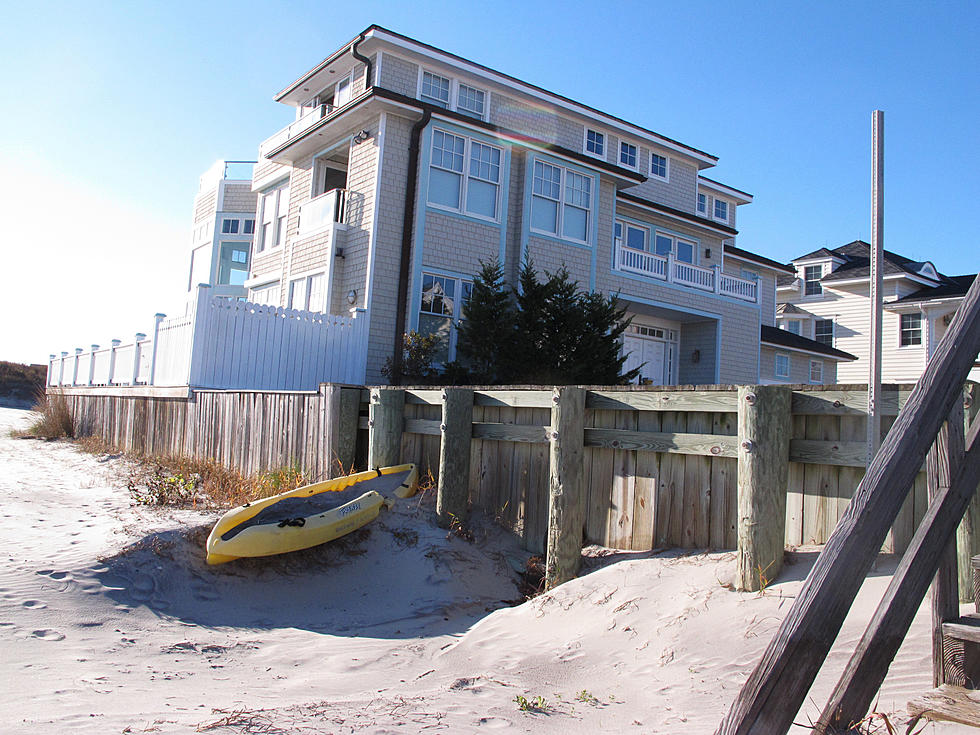
Judge in Margate dunes case critical of NJ efforts
CAMDEN, N.J. (AP) -- A federal judge appeared to favor a Jersey shore town's arguments that New Jersey can't proceed with a plan to widen beaches and build protective sand dunes without letting the owners challenge the proposal.
Judge Renee Marie Bumb will issue a ruling later Thursday on Margate's challenge to New Jersey's coastal protection plan.
The affluent shore town south of Atlantic City doesn't want dunes, saying they are unnecessary, will destroy the aesthetics of its popular beach and scare away tourists during construction. The town and a beachfront couple sued the state saying they had no mechanism to challenge the legality of New Jersey's use of an administrative order seizing private land for the project without undergoing condemnation proceedings.
Bumb appeared to agree, saying the state's attitude was troubling.
"What you're saying is that the state can do whatever it wants. `You have a problem with that? Sue us,' "she said. "Imagine what that says to the public -- that the state will do whatever it wants, and it can, because if we're wrong, they can sue us. That just seems to be so unacceptable in the confines of the Constitution."
Voters in Margate twice passed a referendum opposing a dune for their town, which wants the state and the U.S. Army Corps of Engineers to exclude them in its dune project. Margate argues that its existing bulkhead system is sufficient, and that the worst flooding from Superstorm Sandy came from the bay on the opposite side of town. But the neighboring towns of Ventnor and Longport want the project, and say Margate's resistance could scuttle badly needed protection for all three towns.
The Army Corps has said it will not build the project in piecemeal fashion.
Margate is one of a handful of Jersey shore towns resisting the project, including Bay Head and Wildwood Crest. But it has gotten the farthest in its resistance to a project Gov. Chris Christie has vowed will be built -- with or without the consent of property owners.
Thomas Biemer, an attorney for the town, said the case involved fundamental private property rights, and what the government can and cannot do to them. He said that by seizing the property through administrative orders on Oct. 1 rather than filing a condemnation action in the Superior Court, New Jersey is depriving the owners of the right to challenge the confiscation of their property, even though they will be paid compensation for it.
"The issue is whether the property can be taken with no opportunity at all to challenge the authority to take it in the first place," he said.
Bumb repeatedly asked lawyers for the state why they did not simply avail themselves of condemnation procedures in state court. David Apy, an assistant state attorney general, said surveys and preliminary assessment work had to be done first. He estimated the state would have its assessments of the value of private property to be confiscated completed by late February, and would be ready to file condemnation proceedings in late April.
But Bumb chided the state for not acting quickly enough and said many of the complaints it voiced were of its own making. She was considering whether to allow the Army Corps to award contracts for the work, but prohibit it from starting until a state court could hear Margate's challenge. A temporary restraining order the judge issued in December expires Thursday.
(Copyright 2015 The Associated Press. All rights reserved. This material may not be published, broadcast, rewritten or redistributed.)
More From New Jersey 101.5 FM








